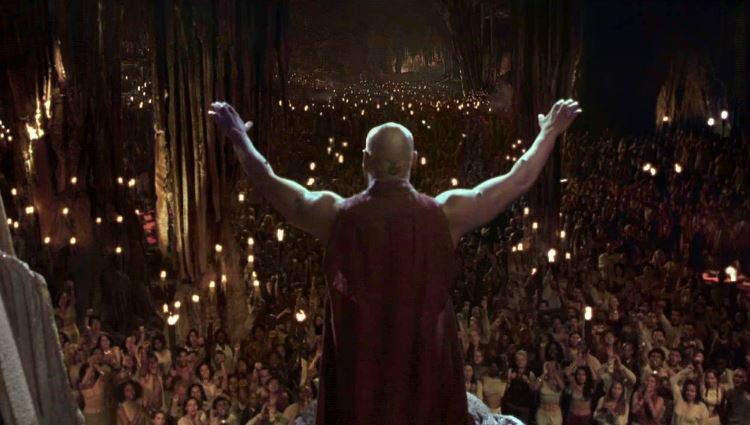Diversity is a good thing. We have to say that today, but the truth is I actually believe it. My personal experiences confirm the cliché.
I grew up in a tiny blue-collar town in Wisconsin, but I was a bit of a vagabond in my 20s. Some cities I lived in were populous and diverse; others were small and mostly homogenous. But everywhere I went, I had the good fortune to make friendships with interesting people of various backgrounds.
Sure, this included people whose skin color and sexual preferences were different than my own, but that’s not what I’m getting at, or not entirely. I’m talking about just meeting people from all walks of life: cowboys and failed actors; oil rig workers and survivors of the toughest streets in West Baltimore.
I benefited from these relationships. It’s surprising how much one can learn about life by breaking bread with someone over a beer and actually listening.
I genuinely believe the friendships I made and the perspective I received offered me a richer, fuller picture of the human experience. That said, I believe our culture’s obsession with diversity is getting a little out of hand.
From Google’s cult-like worship of the Idea to the ridicule heaped on Christopher Nolan’s film Dunkirk (too white!) to the purging of intellectuals who do not embrace the dogmas, it seems like our culture is getting a tad carried away.
A recent local example: A Minneapolis writing conference was canceled because of the lack of diversity of the presenters. Via the Star Tribune:
The lineup of speakers for the Loft Literary Center’s conference on writing for children and young adults was stellar. William Alexander, winner of a National Book Award. Kelly Barnhill, winner of the Newbery Medal. Phyllis Root, author of more than 40 books for children. And 19 others.
Other than Alexander, who is Cuban-American, every writer who agreed to speak was white. And so, just days after announcing it, the Loft in Minneapolis canceled the Oct. 20-21 conference.
“We have set a goal for ourselves to be inclusive and to work toward equity, and we didn’t think the conference would live up to that mission,” Britt Udesen, executive director of the Loft, said Wednesday. “We made a mistake.”
My first reflex was to agree with Udesen. This seemed like a bit of a faux pas. An almost all-white lineup in Minneapolis? Then I read a little further.
The Loft had invited more than 10 writers of color to speak and expected a few “to come through at the last minute, and then they didn’t,” Udesen said.
The venue had invited “more than 10” non-white writers to attend but the writers, for whatever reason, had declined. So the event had to be canceled.
This seems, to be blunt, absurd. The venue made what appears to be a genuine attempt to have a diverse group of presenters, but because these writers could not or chose not to attend, the entire event had to be canceled.
The Loft, of course, has the right to do whatever it wishes. But I find our culture’s hyper-focus on diversity a little troubling—and, quite frankly, a bit weird.
Merriam-Webster define the term religion as the following: “a cause, principle, or system of beliefs held with ardor and faith.”
It seems to me that, for many in our culture, diversity is not just a virtue to be sought but a tenet of faith, one that must be observed at all times and cannot be questioned.
Such a theory might sound silly, but it would not have surprised G.K. Chesterton. “When a man stops believing in God he doesn’t then believe in nothing,” Chesterton once observed, “he believes anything.”
This idea is one further explored by philosopher Alexander Schmemann in his essay “Worship in a Secular Age.” Schmemann suggests that it’s in man’ very nature to worship:
“…worship is a truly essential act, and man an essentially worshipping being, for it is only in worship that man has the source and the possibility of that knowledge which is communion, and of that communion which fulfills itself as true knowledge: knowledge of God and therefore knowledge of the world – communion with all that exists.”
If Schmemann and Chesterton are correct, it would explain why in our age of secularism we treat diversity as not just a good to be pursued, but as something sacred.
















3 Comments
Geo
August 12, 2022, 6:48 pmThe answer is so obvious. The Loft Literary Center must be a white supremacist hotbed. Time to purge!
REPLYGonzo
August 12, 2022, 7:11 pm!
REPLYTom
August 15, 2022, 2:30 amWhen the airlines start hiring pilots based on skin color/religion/etc. instead of flying skills/ratings/experience… and I just can’t wait for my next open heart surgery to be performed by a person hired based on his skin color/religion/etc. instead of medical skills/surgical experience/etc. My friends have a 40 year old daughter who is severely mentally retarded. Maybe that would tick off a diversity box for being a university President or something. Jeez.
REPLY